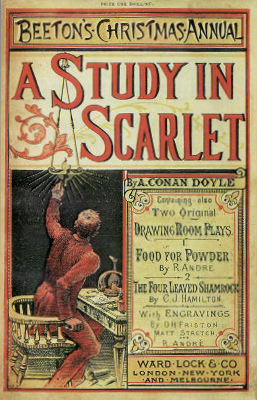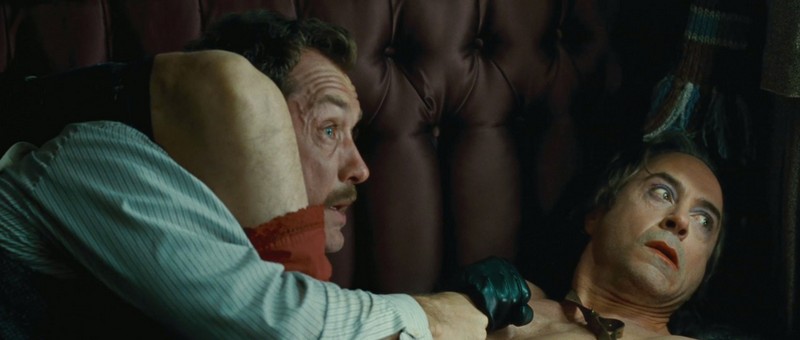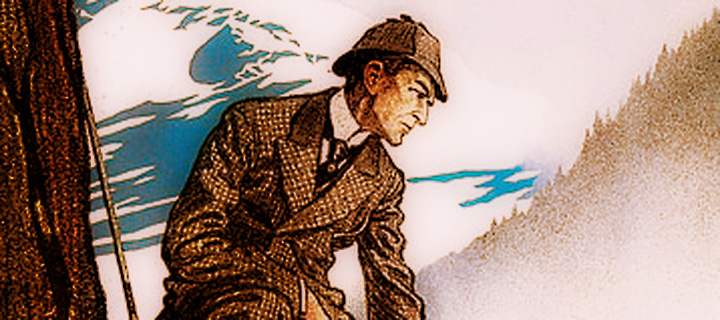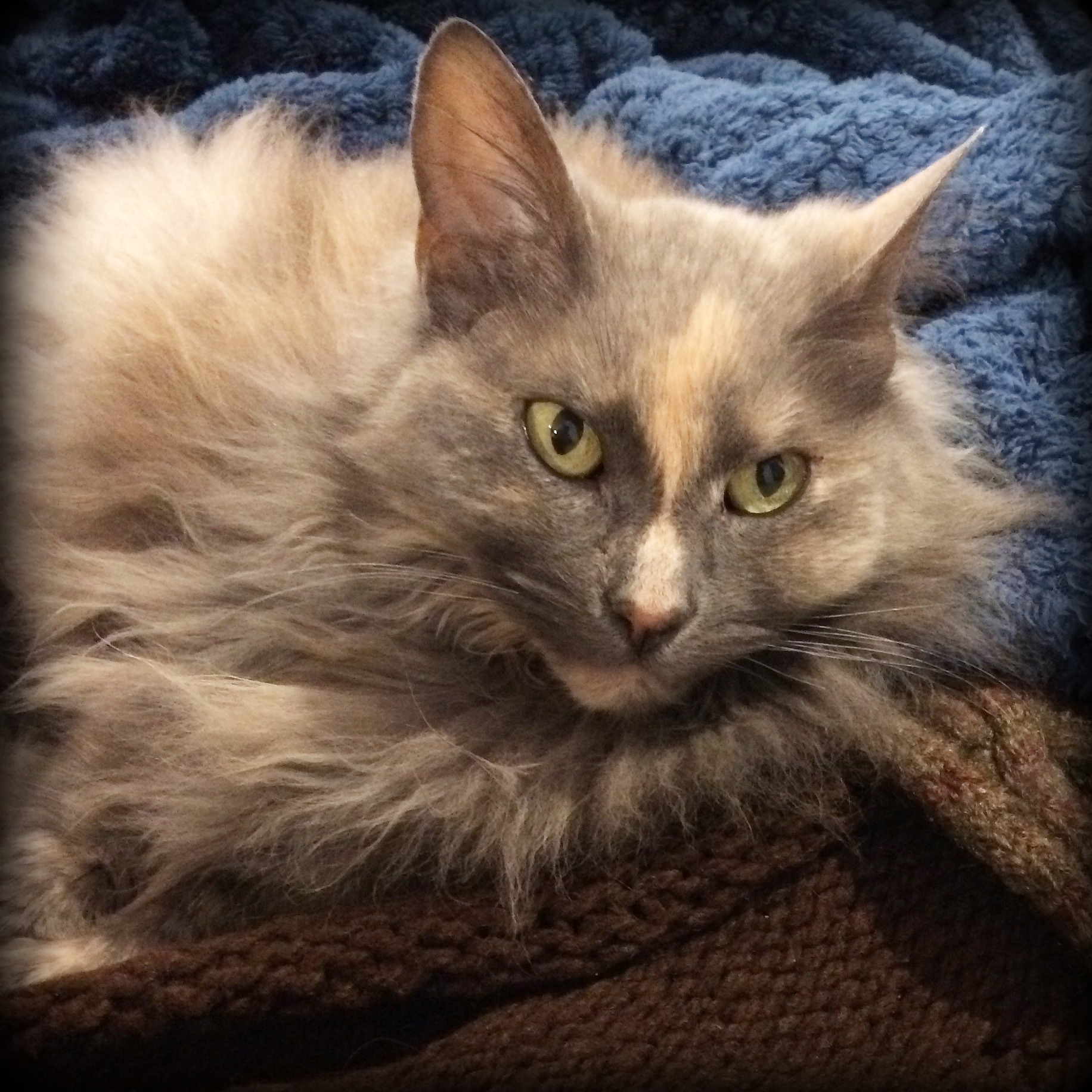Sherlock Holmes seems to be the subject of much court-room drama of late. Last January the BBC threatened to sue CBS who, after approaching the BBC to do a remake of their hit show Sherlock and were presumably rebuffed, decided to go and ahead and make their own version. This seems to have come to nothing, because CBS have turned their version of a modern Sherlock Holmes, Elementary, into a pedestrian crime drama, and we might assume it doesn’t infringe on the copyright of the brilliant Sherlock because it is really boring.

However, a more serious issue of intellectual copyright has been raised by lawyer and Sherlock Holmes scholar Leslie S. Klinger. In February of 2013, Klinger filed a civil suit against the Conan Doyle Estate, who were insisting that he pay a fee to them in order to publish a collection of short stories called In the Company of Sherlock Holmes. One of the authors contributing to the collection wanted to use a character from the 1924 Sherlock Holmes story The Adventure of the Illustrious Client. Works published before 1923 are considered public domain in the U.S., but since that story was published in 1924, Klinger asked the author to speak to the Conan Doyle estate. The estate insisted that Klinger needed to license the whole book, and sent a letter to his small publisher Pegasus Books threatening to stop major distributors from selling the book if he didn’t comply. Klinger and his co-editor, Laurie King, had previously paid a $5,000 licensing fee to publish A Study in Sherlock. But this time they decided to put up a fight.
“I didn’t want to pay it then,” Mr. Klinger told the New York Times, adding: “Enough is enough. This time it was really too big a threat.”
Both BBC and CBS have paid licensing fees to use the Sherlock Holmes character for their respective shows. According to Klinger many licensing fees paid to the estate have been unnecessary, since the main characters and elements of their story derived from materials published before Jan. 1, 1923, are no longer covered by United States copyright law.

“This isn’t the first time the Estate has put pressure on creators,” Klinger said in an online statement at Free Sherlock. “It is the first time anyone has stood up to them. In the past, many simply couldn’t afford to fight or to wait for approval, and have given in and paid off the Estate for ‘permission.’ I’m asking the Court to put a permanent stop to this kind of bullying. Holmes and Watson belong to the world, not to some distant relatives of Arthur Conan Doyle.”
Klinger denied that he was trying to strip the Estate of its proper rights. “The Estate still owns copyrights in the U.S. on 10 of the stories about Holmes—some of the stories that appeared in The Case-Book of Sherlock Holmes. As a lawyer myself, I respect those rights, and in fact I licensed them when I published my New Annotated Sherlock Holmes.”
On Monday, December 23, 2013, the United States District Court for the Northern District of Illinois ruled in Klinger’s favour, the ruling stating that creators are free to use the characters of Holmes and Watson without licensing them from the Conan Doyle Estate. The Court did caution that new Sherlock Holmes stories cannot use elements that appear exclusively in the ten post-1922 stories by Conan Doyle which remain in copyright. However, elements from the fifty pre-1923 stories are now in the public domain.
Back in movie-land, 73 year-old socialite Andrea Plunket is claiming to own the trademark for Sherlock Holmes and John Watson. “I have the rights, that is clear,” Plunket said last week “And I will be suing the BBC for Sherlock. They are not allowed to take a character and create a new story. The same goes for Elementary, the CBS TV adaption starring Jonny Lee Miller. I also have trademarks on the Holmes and Watson characters in Europe.”
Plunket claims the rights were bought for £40,000 by her mother from Russian-born Princess Nina Mdivani, a sister-in-law of Sir Arthur Conan Doyle’s daughter, Dame Jean.
Plunket has been vocal about her claim before. In 2010 she took exception to actor Robert Downey Jr., who starred in Guy Ritchie’s Sherlock Holmes, speculating whether Sherlock was a “butch homosexual”.
“I hope this is just an example of Mr. Downey’s black sense of humour. It would be drastic, but I would withdraw permission for more films to be made if they feel that is a theme they wish to bring out in the future,” Plunket thundered “I am not hostile to homosexuals, but I am to anyone who is not true to the spirit of the books.”

Apparently her attempts to ensure Robert Downey Jr. and Jude Law didn’t get any more homosexual were completely dismissed in court. But Warner Bros. did pay her off.
The Conan Doyle Estate takes a rather different view to Ms. Plunket’s claims. They even have a section dedicated to her on their website. The estate states that
“Ms. Plunket’s late former husband, the producer Sheldon Reynolds, did at one time own United States copyrights in certain Conan Doyle works. In 1981, however, Dame Jean Conan Doyle, the last surviving child of Sir Arthur Conan Doyle, exercised her right to recapture the copyrights under the United States Copyright Act.
Since that time, Dame Jean and her successors have been the exclusive owners of United States copyrights and related rights in Sir Arthur Conan Doyle’s works. Dame Jean’s heirs formed Conan Doyle Estate Ltd to hold and manage these rights.
After Dame Jean’s death in 1997, Ms. Plunket began making her claims. Every federal court to consider Ms. Plunket’s claims has rejected them, and more than one has imposed sanctions against her.”
The Conan Doyle Estate is planning to appeal the December 23rd decision. Meanwhile producers around the world are clamouring to get their Sherlock Holmes movies made. There are rumours of a Punjabi version starring Slumdog Millionaire‘s Anil Kapoor, a Russian big-screen version and a third instalment in Guy Ritchie’s series. Meanwhile BBC has promised at least two more seasons of Sherlock. We suspect they’ll be safe from Ms. Plunket.



